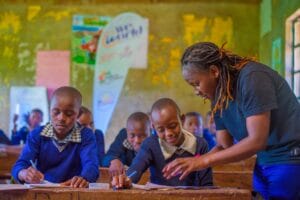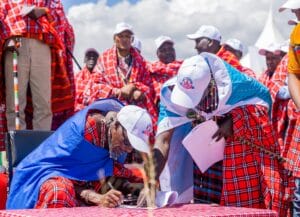
Rahel Saya is an Afghan freelance journalist and activist for women's and children's rights. She has won multiple journalism awards, including the Biagio Agnes Award (2021) and Donne in Corsa Award (2024). Her work highlights the struggles of Afghan women, featured in international publications and her chapter "My Life" in Guarda come una Donna. She has spoken at global forums, including the Austrian and Catalonian parliaments. Now 24, Rahel studies Global Humanities at Sapienza University, Rome, while continuing to amplify the voices of Afghan women through journalism and documentaries.
Reflecting on her life in Afghanistan before leaving, Rahel recounts: “My life in Afghanistan before I left was a tapestry of contrasts, woven with threads of warmth, tradition, and a constant pull toward an uncertain future. As a child, I remember hearing whispers of things I didn’t fully understand—wars, conflicts, restrictions that seemed so distant yet felt so real. As I grew up, I began to understand the weight of it all. I began to hear more about the struggles that came with living in a country torn apart by conflict, and though I was young, I could sense that things were shifting in ways we could no longer ignore. We lived in the tension between the dream of a better life and the harshness of the world we faced. It wasn’t a perfect life. No life is perfect, especially one shaped by the trials of living in a country scarred by war and uncertainty. But it was a life full of possibilities. Despite the ever-present tension, I could still imagine a tomorrow where we could escape the horrors, a tomorrow where peace could finally prevail. But that tomorrow was taken away from us. The future we had hoped for was ripped from our hands, and with it, the life we had built.”
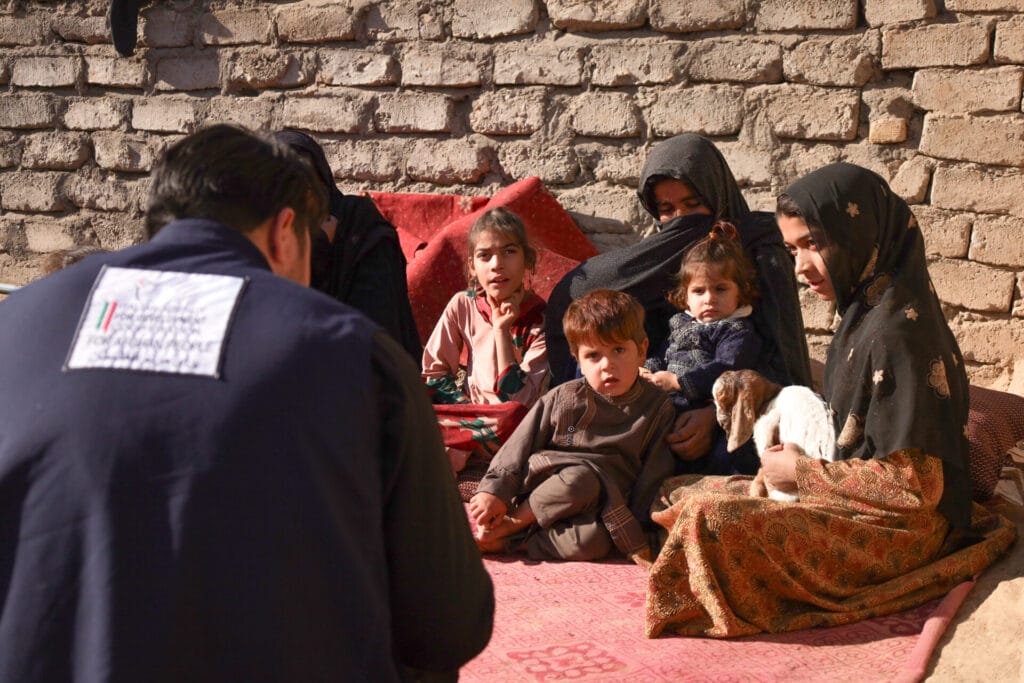
In 2021, like many of her compatriots, Rahel left the country. “Leaving Afghanistan was not a decision I made lightly; it was a choice born from a deep sense of survival, a response to the unbearable weight of fear, violence, and the constant erosion of my rights. When every moment is overshadowed by the threat of danger, when the future holds no promise, leaving becomes the only path toward preserving something of yourself—your dignity, your hope, and your chance to live without constant fear. The journey from Afghanistan was filled with a myriad of challenges. Leaving behind my country, my home, and my identity felt like tearing apart pieces of my soul. Yet, despite the weight of these challenges, there was a flicker of hope that kept me going. Arriving in Italy was both a relief and a new battle. Being a refugee is never easy. The language, the culture, the unfamiliarity of everything—it was all overwhelming. And yet, amid all the difficulties, Italy became a refuge. It offered me a chance to breathe again, to feel like I could begin anew. The pain of leaving Afghanistan will always be with me, but in this new land, I’ve discovered that peace, hope, and even joy are possible again.”
Since arriving in Italy, Rahel says her life has been profoundly transformed.
“The opportunity to learn, to work, and to envision a future has not only been a personal evolution but a deep awakening of purpose. The freedom to live without constant worry has become the foundation upon which I have been able to rebuild my life and my activism. One of my biggest priorities now is to finish my studies. Coming from a country where women’s education is banned and violently suppressed, the act of pursuing knowledge feels like an act of defiance, a rebellion against the forces that tried to silence me and countless other women. It’s not just an education; it’s a statement. Completing my studies is not only for myself but for every girl in Afghanistan who was denied this basic right. Writing articles about the plight of women and children in Afghanistan, contributing to books that tell the stories of those who cannot speak for themselves, and raising awareness about the suffering in my homeland are not just accomplishments—they are my duty. Every word I write, every speech I give is a voice for those who have been silenced. I move forward, not for myself, but for them. My focus now is to amplify their stories, to fight for their rights on every platform I can reach, and to remind the world that Afghan women are not voiceless victims—they are warriors of hope, strength, and resilience.”
Rahel’s activism is deeply rooted in maintaining contact with the women and girls who remain in Afghanistan.
"Staying connected with women and girls in Afghanistan is both a challenge and a deeply meaningful commitment for me. Social media platforms have allowed me to keep in touch with many women and girls, offering them a sense of solidarity, a space to share their stories, and a reminder that they are not forgotten. Many of these women and girls are navigating a reality marked by fear, restriction, and a brutal suppression of their rights. And yet, within these stories, there is an unyielding strength that refuses to be extinguished."
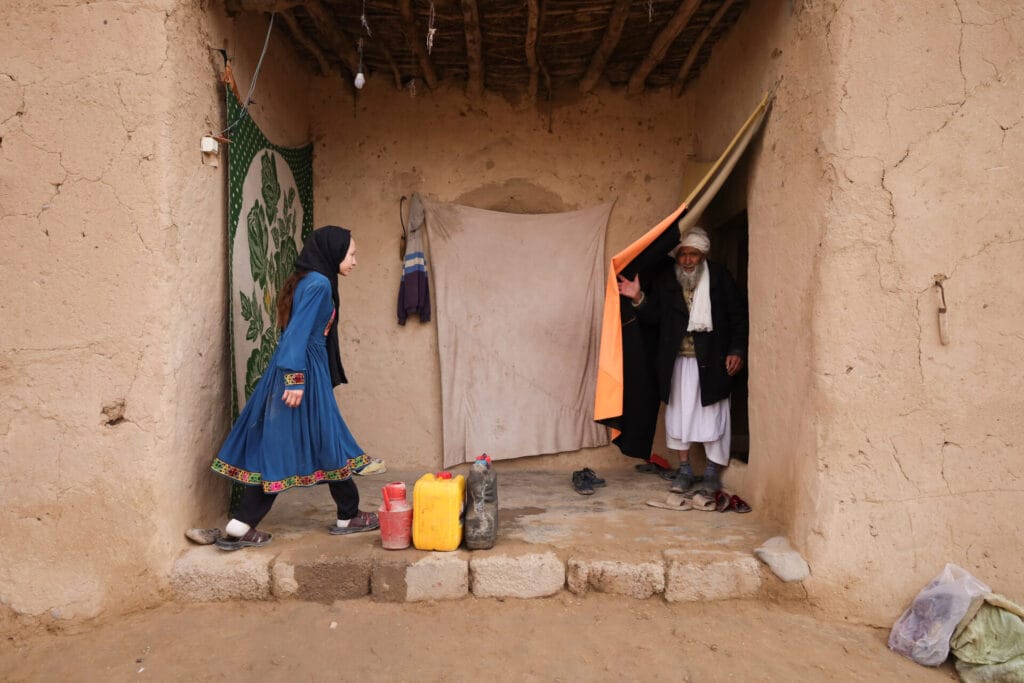
Rahel is determined to share the stories of Afghan women’s resistance to oppression.
"One of the most poignant stories that remains etched in my heart is that of a young girl named Leila, who dreams of becoming a doctor but faces daily barriers to education. She told me she knows the risks—she could be caught, punished, or worse—but she believes that knowledge is the only way to reclaim her future. Another story that deeply affected me came from a group of women who were working as teachers before the recent changes in Afghanistan. They told me how, after schools were closed to girls, they did not give up. Instead, they began teaching in secret locations, teaching girls who, like Leila, were determined to continue their education despite the risks. These stories reflect something much larger than individual struggle; they speak to the collective spirit of women and girls in Afghanistan who refuse to be silenced, even when their voices are threatened. What strikes me most is the deep desire for knowledge, the thirst for education that burns in the hearts of these women and girls. They understand that education is more than just an opportunity—it is a lifeline, a key to their future, and a weapon against the oppression they face. The courage to seek education in secret, to defy the restrictions imposed upon them, is an act of profound bravery."
Since returning to power, the Taliban have imposed numerous edicts under the so-called “Morality Law”, dictating how women should behave and banning them from secondary and higher education, public baths, and even speaking in public.
Before leaving Afghanistan, Rahel worked as a radio presenter, and the Taliban’s “voice ban” holds a particular significance for her. "The Taliban’s ‘voice ban’ is not just an infringement on free speech; it is an attempt to silence the very core of our humanity. For someone like me, who has always believed in the power of words to bring about change, it feels like an assault on the soul. My voice has always been a tool for advocacy, a way to amplify the struggles, hopes, and dreams of those who have been oppressed and silenced for far too long. The ‘voice ban’ is not simply about shutting down a person’s ability to speak—it is about erasing their existence, denying them the right to be seen, to be heard, to matter. It’s a denial of identity, of agency, of the most basic form of human expression. It’s the forced suppression of everything we are, everything we stand for. For women in Afghanistan, their voices have long been suppressed, but the ‘voice ban’ feels like the final act in a long history of erasure. It is as if the Taliban are trying to bury us, to make us invisible, to tell us that we don’t matter, that our thoughts, dreams, and truths are not worth hearing. For me, this ban is a painful reminder of how fragile freedom really is. The “voice ban” is not just a personal loss, but a collective one. It’s a blow to the very fabric of freedom, a stark reminder that when one voice is silenced, the entire community suffers."
Rahel believes deeply that men and boys must take an active role in advancing gender equality in Afghanistan.
“Afghan men and boys have a transformative role in supporting the rights of women and girls,” she explains. “They are not mere bystanders in this struggle; they are key to reshaping narratives and dismantling the deeply rooted systems of oppression that have silenced women for generations. This is not just a responsibility—it is an opportunity to redefine what it means to be a man in Afghanistan. For too long, Afghan women have carried the weight of resistance on their shoulders, often in isolation. Now, men and boys must step forward—not as saviours, but as allies. True allyship means listening to women and girls, amplifying their stories, and standing beside them in the fight for justice. It means confronting the privileges and power structures that perpetuate inequality and challenging harmful traditions.
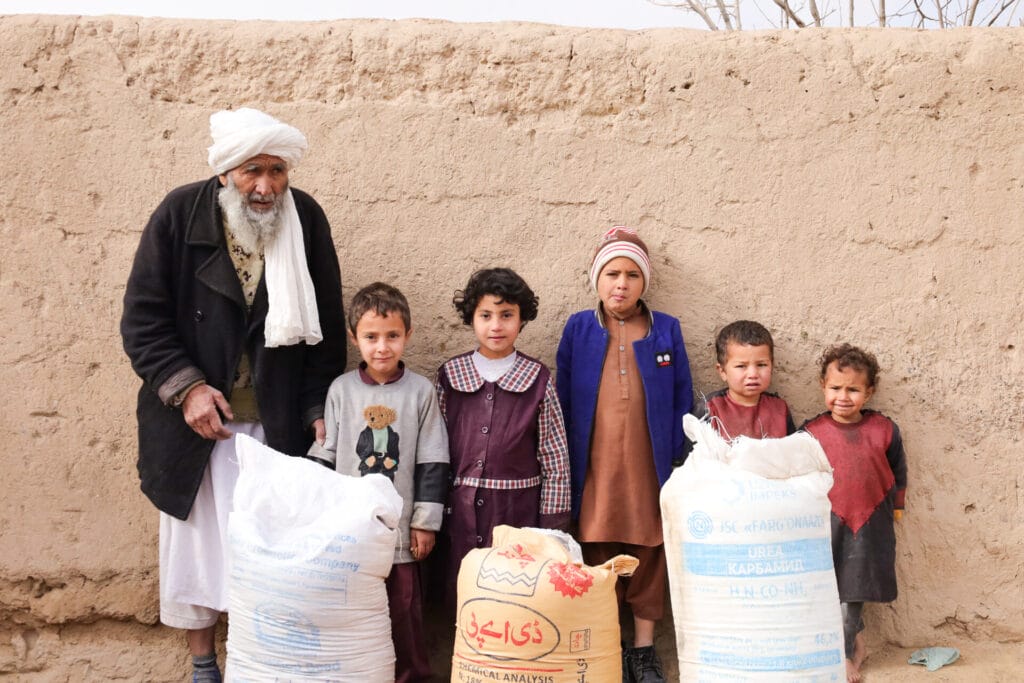
Men and boys can begin by fostering change within their own families—treating their mothers, sisters, daughters, and wives with the dignity and respect they deserve. They can raise their sons to see women as equals and empower their daughters to believe in their limitless potential. Men can refuse to participate in oppressive practices, such as forced marriages or denying women education, and instead advocate for their rights to learn, grow, and lead. Being an ally also means using their voices in spaces where women are absent or silenced. Men can demand that women be included in decision-making—whether at home, in the community, or within the government. They can stand up to other men when witnessing harassment or discrimination and refuse to remain silent in the face of injustice. True allyship takes courage—the courage to defy cultural norms and endure criticism for doing what is right. Perhaps the most powerful thing Afghan men and boys can do is to see women as equal partners in building the future of Afghanistan. No society can thrive when half its population is held back. This journey will not be easy. It requires deep self-reflection, confronting fears and prejudices, and a willingness to change oneself and the world. Supporting women’s rights is not a betrayal of Afghan culture; it is an act of love and loyalty to the true spirit of Afghanistan. The fight for gender equality is about more than liberating women—it is about freeing everyone from a system that limits the potential of society as a whole.”
When asked what Western societies often misunderstand about Afghan women, Rahel responded:
“Western societies often reduce Afghan women to stereotypes of victimhood and helplessness. This oversimplified perception erases the complexities of their lives and overlooks the incredible strength, resilience, and determination that define so many of them. Yes, Afghan women face immense challenges—systemic oppression, violence, and restrictions on their rights—but they are far from powerless. The narrative often presented in the West fails to capture the quiet yet profound acts of resistance Afghan women undertake daily. Whether it’s the young girl studying secretly under threat of punishment, the mother teaching her daughters about their rights, or the women defying expectations to create art, lead movements, or run businesses, Afghan women are not waiting to be saved—they are fighting for themselves in ways the world often ignores. One major misunderstanding is the idea that Afghan women are simply victims of their culture or religion. This view disregards how many Afghan women find strength in their cultural and spiritual identities. For many, faith is a source of empowerment and resistance. They seek change rooted in their lived experiences and values—not the imposition of foreign ideals. The reality of their lives is far more nuanced than the simplified narratives often told in the West. Afghan women’s lives are not defined solely by suffering but also by their courage to dream, to build, and to create a better future for themselves and their families. Western societies often fail to see this nuance because they view Afghan women through a lens of ‘otherness,’ treating their struggles as distant and unfamiliar. In truth, their fight for justice is not unlike struggles for equality worldwide. Afghan women do not need pity or saviourism. If the West truly wants to support them, it must look beyond the headlines and recognise Afghan women as leaders, visionaries, and powerful forces for change.”
Afghanistan is a country that, at times, returns to the spotlight, often misunderstood and then long forgotten. Rahel shares a heartfelt message for those outside Afghanistan supporting the fight for Afghan women’s equality.
“To the people outside Afghanistan, I would say this: Afghan women are not just symbols of struggle—they are warriors of resilience, courage, and hope. The world must stand with them, not as saviours, but as allies, offering the support they need to thrive and reclaim their rightful place in society.”
She then speaks directly to Afghan women: “To the women and girls of Afghanistan today, I want you to hear this: your strength is immeasurable. Even in the darkest moments, when it feels as though the world has turned its back on you, know that you are not invisible. Your dreams matter. Your voice matters. You are not alone. Do not let those who oppress you define who you are. You are daughters of a land rich with history—a history of strength and resistance. The fight for your rights is not just about today; it is a legacy, a promise to the future that your daughters and granddaughters will walk freely, never having to endure what you have. You are the ones shaping the future, even if the world cannot yet see it. Even if it feels like an impossible task, every small act of resistance, every moment you dare to dream, every girl who dares to pick up a book or speak out, is a victory. The world may seem silent, but the truth is that your courage, your determination, is the loudest sound in the world. Hold on to it. The world will know that Afghan women fought—not just for themselves, but for the future of all women everywhere.”


